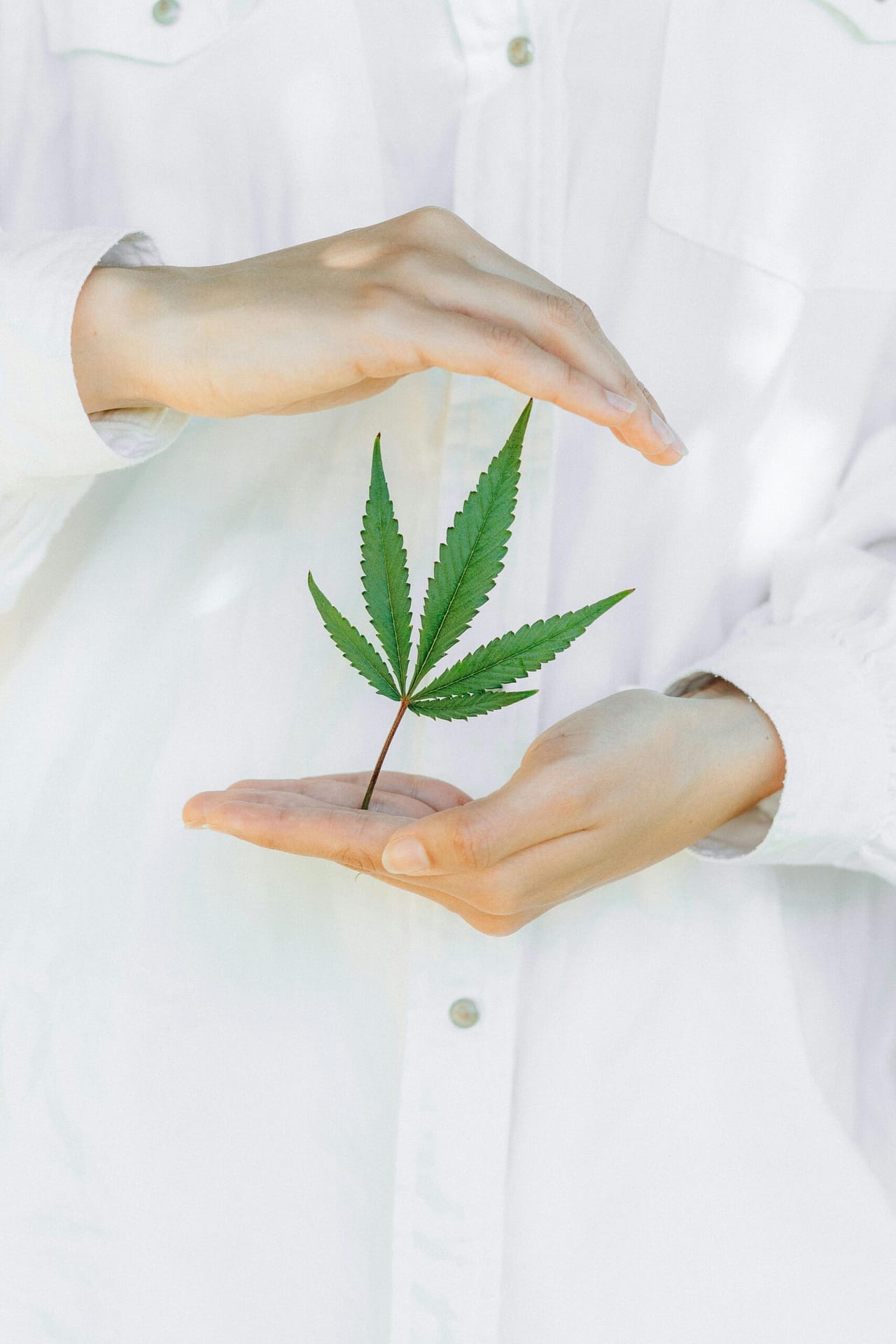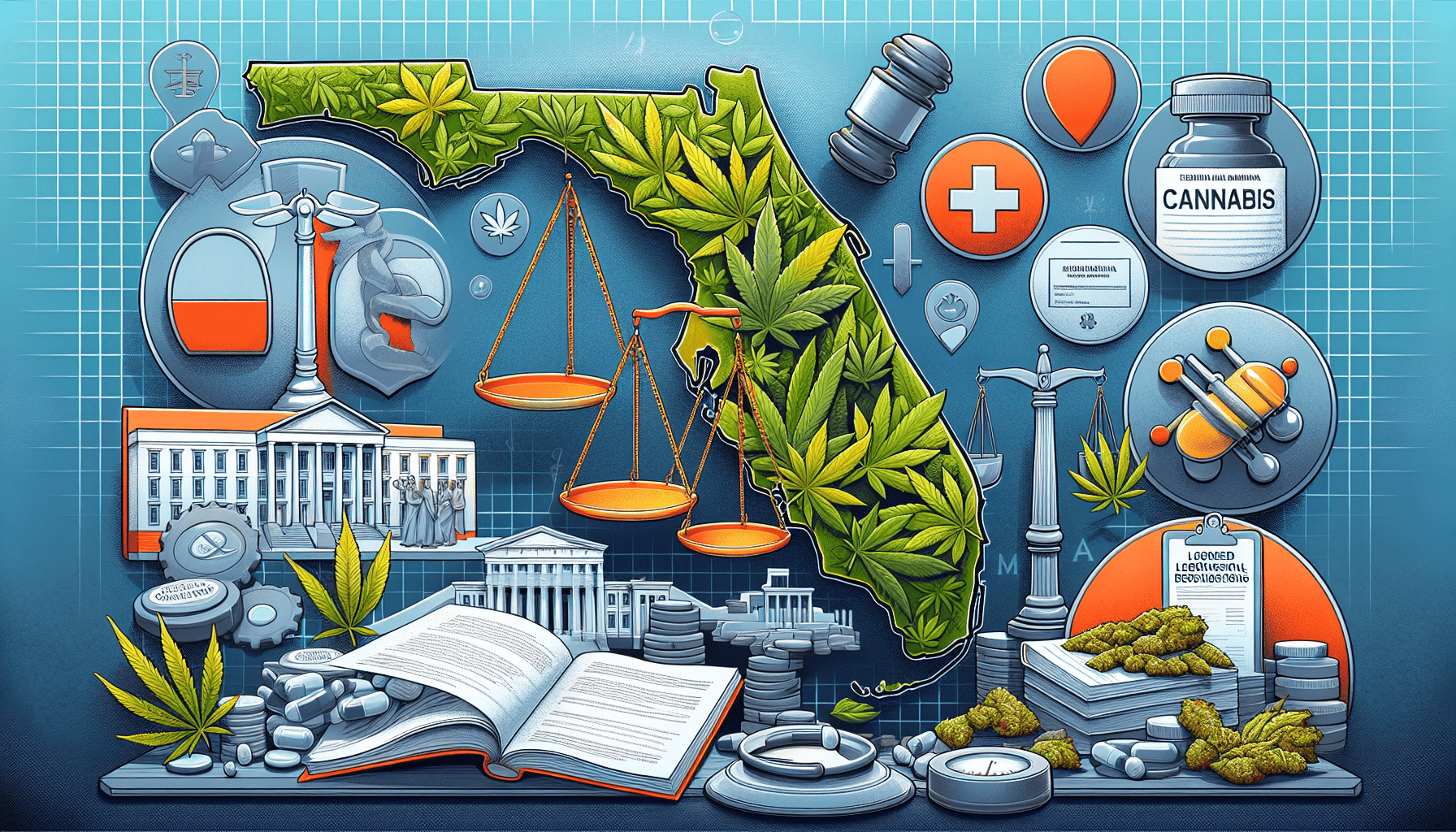In this article, you’ll gain a friendly and concise overview of the cannabis laws in the sunshine state – Florida. From understanding the medical cannabis program to exploring the legal restrictions surrounding recreational use, you’ll find all the key information you need to know. So, get ready to dive into this fascinating topic and discover how Florida is navigating the complexities of cannabis legislation.
Medical Use of Cannabis in Florida
Qualifying Conditions for Medical Cannabis
In Florida, the use of cannabis for medicinal purposes is legal for individuals who have been diagnosed with certain qualifying medical conditions. These conditions include but are not limited to cancer, epilepsy, glaucoma, HIV/AIDS, Crohn’s disease, Parkinson’s disease, and multiple sclerosis. It is important to note that individuals who wish to obtain medical cannabis must have a recommendation from a qualified physician.
Obtaining a Medical Cannabis Card
To obtain a medical cannabis card in Florida, you must first be evaluated by a qualified physician who is registered with the state’s Medical Marijuana Use Registry. If the physician determines that you have a qualifying condition, they will enter your information into the registry and issue a recommendation. Once you have received the recommendation, you can apply for a medical cannabis card through the Florida Department of Health. If approved, you will receive a card that allows you to legally obtain and use medical cannabis in the state.
Limitations on Medical Cannabis Use
While the use of medical cannabis is legal in Florida, there are several limitations and regulations in place. Patients are not allowed to smoke cannabis in any form, but they can use other methods such as oils, tinctures, vaporizers, and edibles. Additionally, patients are prohibited from growing their own cannabis plants and must purchase their medication from licensed dispensaries. It is important to adhere to these limitations to ensure compliance with the law and avoid any legal consequences.
Recreational Use of Cannabis in Florida
Current Status of Recreational Cannabis in Florida
Currently, the recreational use of cannabis is not legal in Florida. However, there have been ongoing discussions and movements towards the decriminalization and legalization of recreational cannabis in the state. While several other states have already legalized recreational cannabis, Florida has yet to follow suit.
Proposed Legislation for Recreational Cannabis
There have been various proposed bills and initiatives advocating for the legalization of recreational cannabis in Florida. These proposals aim to regulate and tax the sale and use of cannabis for recreational purposes, similar to how alcohol is regulated. However, it is important to note that these bills have not yet been enacted into law, and the status of recreational cannabis in Florida remains unchanged. It is important to stay informed about any updates or changes in legislation regarding recreational cannabis in the state.
Criminalization of Cannabis in Florida
Possession of Cannabis and Penalties
The possession of cannabis for non-medical purposes is illegal in Florida. Possession of 20 grams or less is considered a misdemeanor offense, punishable by up to one year in jail and a fine of up to $1,000. Possession of more than 20 grams is considered a felony offense, with varying penalties depending on the amount and circumstances. It is essential to understand that the possession of cannabis without a valid medical cannabis card can result in legal consequences and should be avoided.
Distribution and Sale of Cannabis and Penalties
The distribution and sale of cannabis without the appropriate licenses and permits is illegal in Florida. Selling or delivering 20 grams or less of cannabis is a misdemeanor offense, punishable by up to one year in jail and a fine of up to $1,000. Selling or delivering more than 20 grams is a felony offense, with penalties that increase depending on the amount and circumstances. It is crucial to refrain from engaging in the illegal distribution or sale of cannabis to avoid severe legal repercussions.
Cultivation of Cannabis and Penalties
Cultivating cannabis plants for non-medical purposes is strictly prohibited in Florida. Cultivation of any amount of cannabis is considered a felony offense, punishable by imprisonment and hefty fines. The severity of the penalties depends on the number of plants and the intent behind the cultivation. It is essential to note that even cultivating cannabis for personal use, without a valid medical cannabis card, is against the law and can result in criminal charges.
CBD Laws in Florida
Legal Status of CBD
In Florida, CBD derived from hemp with no more than 0.3% THC is legal for both medical and recreational use. However, CBD derived from cannabis plants with higher levels of THC is only legal for individuals with a valid medical cannabis card. This means that individuals without a medical card can legally purchase and use CBD products as long as they meet the THC requirements.
CBD Regulations and Restrictions
While CBD is legal in Florida, there are regulations and restrictions in place to ensure safety and quality control. CBD products must be properly labeled and tested to confirm the THC levels and ensure that they meet the legal requirements. It is important to purchase CBD products from reputable sources to ensure that you are getting a safe and effective product.
Driving Under the Influence of Cannabis
DUI Laws for Cannabis
Driving under the influence of cannabis is illegal in Florida. The state has established blood THC concentration limits to determine impairment. If a blood test reveals a THC concentration of 5 ng/mL or higher, it is considered evidence of impairment. However, it is important to note that a positive THC test alone is not sufficient evidence of impairment and additional factors may be taken into consideration.
Penalties for Cannabis DUI
The penalties for driving under the influence of cannabis in Florida are similar to those for driving under the influence of alcohol. A first offense can result in fines, license suspension, mandatory drug education programs, and possible imprisonment. Subsequent offenses carry more severe penalties, including longer license suspensions and increased fines. It is crucial to refrain from driving under the influence of cannabis to ensure the safety of yourself and others on the road.
Employment and Cannabis Use
Drug Testing Policies
Many employers in Florida have drug testing policies in place that include testing for cannabis use. While the use of medical cannabis is legal in the state, employers have the right to enforce strict drug-free workplace policies. This means that even if you have a valid medical cannabis card, you may still be subject to drug testing and potential consequences if cannabis is detected in your system. It is important to familiarize yourself with your employer’s drug testing policies and understand the potential implications of cannabis use on your employment.
Legal Protections for Employees
Despite the prevalence of drug testing policies, some legal protections exist for employees who are registered medical cannabis users. Employers are prohibited from taking adverse actions against employees solely based on their status as medical cannabis users. However, it is essential to note that these protections may vary depending on the specific circumstances and the nature of the job. It is advisable to consult with an employment attorney to better understand your rights and protections as a medical cannabis user in the workplace.
Educational Campaigns and Awareness
Efforts to Educate the Public on Cannabis Laws
In an effort to educate the public on cannabis laws and regulations, various organizations and government entities in Florida have launched educational campaigns. These campaigns aim to provide accurate and up-to-date information on the legalities and potential consequences of cannabis use, both medically and recreationally. Through public service announcements, websites, and community outreach programs, these educational campaigns play a vital role in ensuring that individuals are informed about the laws surrounding cannabis in Florida.
Promoting Responsible Cannabis Use
Alongside educational campaigns, promoting responsible cannabis use is an important aspect of public awareness in Florida. Responsible use includes adhering to the law, ensuring that cannabis is used only by individuals with qualifying medical conditions, and using it in a safe and controlled manner. It also involves understanding the potential risks and side effects of cannabis use and being mindful of the impact it may have on one’s health, relationships, and overall well-being. Promoting responsible cannabis use contributes to a safer and more informed community.
Medical Cannabis Dispensaries
Licensed Dispensaries in Florida
Florida has a regulated system for medical cannabis dispensaries. These dispensaries are licensed by the state and are the only authorized sources for purchasing medical cannabis. They are required to adhere to strict regulations regarding the cultivation, processing, and dispensing of cannabis. As of [date], there are [number] licensed medical cannabis dispensaries in Florida, located throughout the state to ensure accessibility for registered patients.
Regulations for Cannabis Dispensaries
Cannabis dispensaries in Florida must comply with various regulations to ensure the safety and quality of the products they provide. These regulations cover areas such as security measures, inventory tracking, labeling, and employee training. Dispensaries are also required to maintain accurate records and follow specific protocols to prevent diversion and ensure accountability. By enforcing these regulations, the state aims to protect patients and ensure that they have access to safe and effective medical cannabis.
Expungement of Cannabis Convictions
Eligibility for Expungement
Florida provides the opportunity for individuals with past cannabis convictions to seek expungement under certain circumstances. Eligibility for expungement depends on factors such as the type of offense, the amount of cannabis involved, and the individual’s criminal record. While not all convictions can be expunged, it is worthwhile to consult with an attorney to determine if you qualify for expungement and to guide you through the process.
Process for Expungement
The process for expungement of cannabis convictions in Florida involves filing a petition with the court and providing the necessary documentation, including the certificate of eligibility from the Florida Department of Law Enforcement. The petition will then be reviewed by the court, and if approved, the record of the conviction will be sealed or destroyed. Expungement provides individuals with the opportunity to move forward with improved employment prospects and a clean criminal record.
Federal Laws and Florida’s Cannabis Laws
Conflict between State and Federal Laws
There is an ongoing conflict between state and federal laws regarding cannabis in Florida. While the use of medical cannabis is legal under Florida law, cannabis remains classified as a Schedule I controlled substance at the federal level. This means that federal law enforcement agencies have the authority to enforce federal drug laws even in states where cannabis is legal. It is important to be aware of this conflict and understand the potential legal implications of participating in activities that are legal under state law but illegal at the federal level.
Enforcement of Federal Laws in Relation to Cannabis
Although federal law enforcement agencies have the authority to enforce federal drug laws, their level of enforcement regarding cannabis varies. In recent years, the federal government has adopted a more tolerant stance towards states that have legalized medical or recreational cannabis. However, it is important to note that federal enforcement priorities can change over time, and individuals should remain cautious and informed about the potential risks associated with federal enforcement of cannabis laws in Florida.




